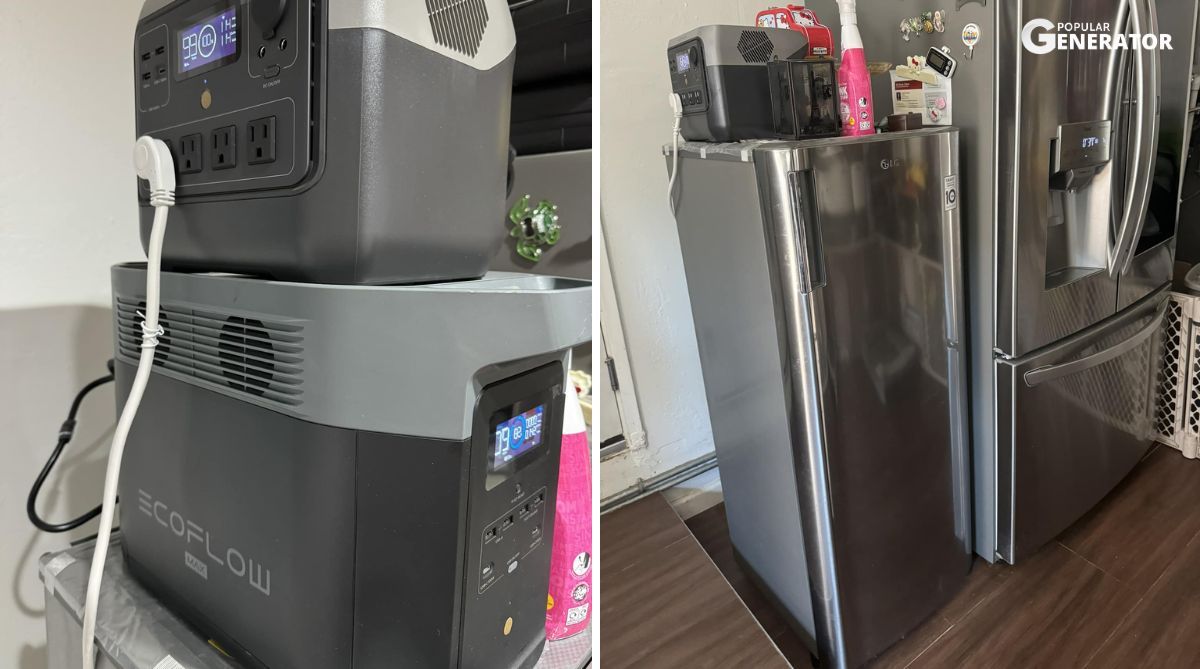Understanding Generators and Their Function
Generators are devices that convert mechanical energy into electrical energy, providing power during outages or in remote locations. They come in varying sizes and capabilities, ranging from small portable units to larger standby generators. Their primary function is to supply electricity to various devices, including refrigerators. However, improper use or selection can lead to complications.
When generators are used to power a refrigerator, several factors come into play. The voltage output, wattage, and surge capacity of the generator are vital for ensuring the refrigerator operates efficiently. If the generator's output is inadequate or too high, there is a risk of damaging the refrigerator's compressor and electronic components.
Risks of Using Generators with Refrigerators
Using a generator to power a refrigerator can cause several problems, especially if precautions aren't taken. Understanding these risks is key to mitigating potential damage.
Electrical Surges: One of the most significant risks associated with using a generator is the potential for electrical surges. When a generator is started or when the load varies, the voltage output can fluctuate, leading to surges that could harm your refrigerator's electrical components.
Incompatible Voltage: If the generator’s output voltage is not matched with the refrigerator's requirements, it can cause overheating and failure. Many refrigerators require a stable electrical supply to operate efficiently. If the generator cannot provide this, the risk of damage rises.
See more: What Size Generator Do I Need to Run a Refrigerator?
Symptoms of Generator Damage to Refrigerators
Identifying symptoms of potential damage will enable you to take action before serious problems arise. It's essential to monitor your refrigerator frequently, especially after using a generator.
Unusual Noises: Pay attention to any strange sounds coming from your refrigerator. Clicking, grinding, or humming noises that intensify can indicate compressor or motor failure due to improper voltage supply.
Inconsistent Temperature: An unstable power supply from a generator may lead to fluctuating refrigerator temperatures. If your refrigerator is not cooling properly or has inconsistent temperatures, it might be a sign of damage from generator usage.

Tips for Safely Using a Generator with Refrigerators
Taking precautionary measures can help protect your refrigerator from potential generator-related damage. Here are steps to ensure safe operation:
Before plugging in your refrigerator to the generator, ensure that the generator's wattage exceeds the refrigerator's starting requirements. Check the appliance specifications to know the recommended surge wattage and ensure proper compatibility.
Use a surge protector between the generator and the refrigerator. This can help absorb any sudden increases in voltage, protecting the refrigerator's electrical components from damage.
Ensure the generator is well-maintained. A malfunctioning generator may not provide stable voltage, increasing the risk of damaging your refrigerator. Regular maintenance checks can help keep your generator in top condition.
See more: What Can I Run With a 5000-Watt Generator?
Consideration of Generator Types for Refrigerators
If you're in the market for a generator to power your refrigerator, knowing the best options available can greatly enhance your electric reliability during outages. Here are some of the best generators tailored for refrigerator use:
- Inverter Generators: These generators provide stable voltage and are quieter than traditional generators, making them ideal for households. They're suitable for sensitive appliances like refrigerators. Brands like Honda and Yamaha are renowned for their reliability and efficiency.
- Portable Standby Generators: These units offer a larger power output and can run multiple appliances, including refrigerators, without hassle. Generators from brands like Generac provide ample wattage for a full household.
- Dual-Fuel Generators: These versatile options run on gasoline or propane, giving you flexibility in fuel choices. They are generally quieter and offer stable power, ensuring your refrigerator operates optimally.
- Solar Generators: While initially more expensive, solar generators provide renewable energy sources that are environmentally friendly. They are perfect for maintaining essential appliances when paired with larger battery systems.
- Portable Generators: These budget-friendly options suit those who require smaller power outputs during occasional outages. Ensure that you purchase models with stable voltage outputs.
Conclusion
When exploring the query, can a generator damage a refrigerator, it is imperative to recognize the potential risks involved and take necessary precautions to protect your appliance. By choosing the right generator, ensuring compatibility, and maintaining electrical stability, you can safely power your refrigerator without compromising its longevity. Understanding the operational nuances between generators and appliances ensures that you safeguard your refrigerator from potential damage during unexpected power outages.










